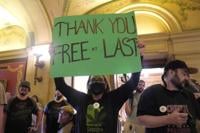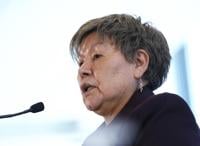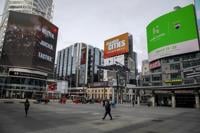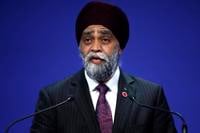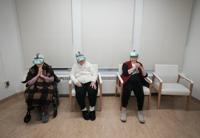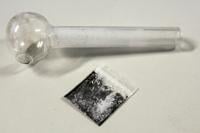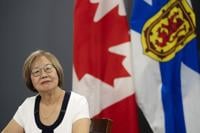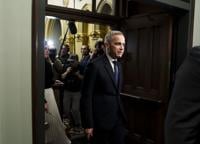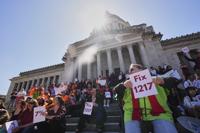OTTAWA - Conservative Leader Pierre Poilievre will not have a seat in the next Parliament, after a stunning upset by Liberal candidate Bruce Fanjoy in the riding of Carleton.Â
Poilievre's loss raises a host of questions about his ability to continue with the Conservative party leadership, and the role he will play as the House of Commons reconvenes.Â
In his concession speech on election night, Poilievre pledged that Conservatives will "do our constitutional duty of holding government to account and proposing better alternatives."Â
But the duty of leading the Official Opposition in Parliament rests with a sitting MP.
Lyle Skinner, a constitutional lawyer who specializes in parliamentary law, said the role is not explicitly defined in şÚÁĎłÔąĎÍř law but it is "hard-coded" into our system of responsible government, where the government has to defend its record through questions posed by the Opposition leader.
"If you don't have a seat in the House of Commons, that constitutional function (of Opposition leader) is delinked and it breaks down," he said.Â
When Mark Carney became Liberal leader in March, he was named prime minister despite the fact that he did not have a seat in the House — a very different situation.
"The prime minister is actually an officer of the Crown, and so it's appointed by the governor general," Skinner said.Â
Poilievre was first elected in Carleton in 2004 and has won in the suburban Ottawa riding six subsequent times over the last 21 years.
He took the Conservative reins in 2022, winning the leadership by a wide margin on the first ballot. He has a reputation for being a very effective Opposition leader, with a penchant for pointed attacks in question period.Â
Fanjoy was leading in Carleton by more than 3,800 votes with over 99 per cent of polls reporting on Tuesday afternoon.Â
The political rookie tirelessly knocked on doors in his bid to unseat Poilievre, saying the riding deserved better.
Poilievre can remain as Conservative leader even if he is not the leader of the Opposition in the House of Commons, though that decision will rest with the Conservative party.
He could seek a different seat in a byelection if one should become vacant.Â
Even if a seat opens up, it could be months until a byelection is actually held. The government has up to 180 days, or six months, after a seat is vacated to call a byelection, and it must be held within 50 days after that.Â
In his concession speech early Tuesday morning, Poilievre congratulated Prime Minister Mark Carney on forming government and indicated he would continue as Conservative leader.
"It will be an honour to continue to fight for you and to be a champion of your cause," he told a crowd of supporters at a downtown Ottawa convention centre.Â
He spoke several hours before the votes were fully counted in his own riding, but he trailed all night.Â
The Conservative party has not responded to a request for comment on the results in Carleton.
On Tuesday, former party leader and re-elected MP Andrew Scheer tweeted his support for Poilievre to stay on as leader, citing the party's gains in popular vote and seat count.Â
The Tories had won 144 seats and garnered just over 41 per cent of the popular vote, according to Elections Canada results on Tuesday afternoon. The last time a conservative party had that high of a percentage was in 1988. The modern Conservative party was formed in 2003.
"His inspirational leadership has brought more people into the Conservative movement," Scheer said in a social media post Tuesday afternoon.Â
"His continued leadership will ensure we finish the job next time."
This report by şÚÁĎłÔąĎÍř was first published April 29, 2025.




